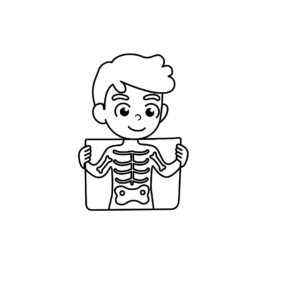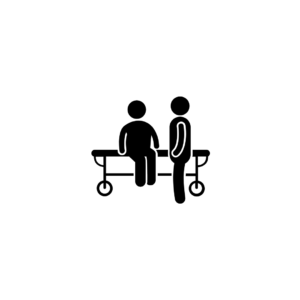Description
Overview of Bachelor of Science in ECG Technology
The Bachelor of Science in ECG Technology program is designed to provide students with the knowledge and skills necessary to function as skilled Electrocardiogram (ECG) technicians. This program focuses on understanding cardiovascular physiology, mastering ECG procedures, and developing proficiency in interpreting electrocardiograms. Graduates are prepared for roles in hospitals, clinics, and diagnostic health facilities, where they play a crucial role in diagnosing heart conditions.
Core Areas of Study in B.Sc. ECG Technology
Introduction to ECG Technology
Overview of the role of ECG technicians, including the fundamentals of electrocardiography and its significance in diagnosing heart conditions.
Human Anatomy and Physiology
In-depth study of the human body, especially the cardiovascular system, to understand the anatomy and functions relevant to ECG testing.
Electrophysiology of the Heart
Examination of the electrical activity of the heart, including the conduction system and how it relates to ECG readings.
ECG Recording Techniques
Practical training on how to perform ECG tests, including electrode placement, patient preparation, and equipment operation.
ECG Interpretation
Skills for analyzing and interpreting ECG readings to identify abnormalities such as arrhythmias, myocardial infarctions, and other cardiac conditions.
Patient Care and Safety
Understanding patient management, comfort, and safety protocols during ECG testing and other cardiovascular procedures.
Stress Testing and Holter Monitoring
Training in performing exercise stress tests and ambulatorily monitoring patients using Holter monitors to assess heart function under various conditions.
Quality Assurance and Control in ECG
Emphasis on ensuring the accuracy of ECG procedures through quality control measures and maintaining proper equipment standards.
Health Informatics
Introduction to electronic health records (EHRs) and the use of technology in managing patient data within healthcare settings.
Clinical Practice and Hands-On Training
Practical experience in clinical settings, allowing students to apply theoretical knowledge in real-life scenarios under supervision.
Curriculum Structure
A typical Bachelor of Science in ECG Technology program may include:
Core Courses: Key subjects covering anatomy, ECG techniques, interpretation skills, and patient care.
Laboratory and Clinical Experience: Opportunities for hands-on training in clinical environments, conducting ECG tests, and developing technical skills.
Elective Courses: Options to explore related areas such as advanced cardiac care, echocardiography, or vascular technology.
Capstone Project or Internship: A project or field placement that enables students to engage with ECG technology and cardiovascular diagnostic practices.
Admission Requirements
Admission to a B.Sc. in ECG Technology program typically requires:
A high school diploma with a strong foundation in science courses, particularly biology and chemistry.
A minimum GPA as specified by the institution, often in the range of 2.5 or higher on a 4.0 scale.
Some programs may require standardized test scores (e.g., SAT or ACT).
Letters of recommendation and a personal statement discussing the candidate?s interest in ECG technology and cardiovascular health.
Skills Developed in a B.Sc. in ECG Technology Program
Graduates of the Bachelor of Science in ECG Technology program will develop essential skills, including:
Technical Skills: Proficiency in performing ECG tests and using related medical equipment effectively.
Analytical Skills: Ability to interpret ECG results accurately and recognize potential cardiac issues.
Patient Interaction: Competence in communicating with patients, assuring comfort, and explaining procedures clearly.
Attention to Detail: Precision in conducting ECG tests, ensuring correct electrode placement, and accurate data recording.
Team Collaboration: Skills for working effectively within healthcare teams, collaborating with physicians and other medical staff.
Career Opportunities
Graduates with a Bachelor of Science in ECG Technology can pursue various career paths, including:
Electrocardiogram Technician
Performing ECG tests in hospitals or clinics, assisting in the diagnosis of heart conditions.
Cardiac Monitor Technician
Monitoring patients? heart rhythms and reporting any abnormalities to healthcare providers.
Stress Test Technician
Conducting exercise treadmill tests to assess cardiac function during physical stress.
Holter Monitor Technician
Applying and maintaining Holter monitors for 24-hour or longer ECG monitoring of patients.
Clinical Research Coordinator
Assisting in research studies related to cardiovascular health and technology.
Health Educator
Promoting heart health awareness and educating patients on cardiovascular disease prevention.
Conclusion
The Bachelor of Science in ECG Technology program offers a comprehensive educational experience, preparing students to become proficient ECG technicians. Through specialized training in electrocardiography, patient care, and cardiovascular health, graduates are well-equipped to meet the growing demand for healthcare professionals skilled in cardiac diagnostics. If you have any further questions about the B.Sc. in ECG Technology program or related topics, feel free to ask!









